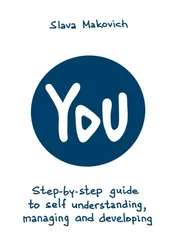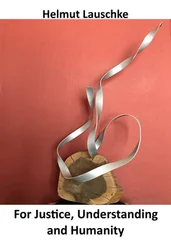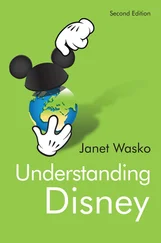On the other hand, people of other races - if that means, of different colours, ethnicity - are still a small minority among the white British. Some parts of rural Britain are almost as white as Poland. But in large cities black and brown young British people along with non-British immigrants from all over the world provide a vigorous diversity that seems strange to people from eastern Europe. And while there are some doubters, some people who would prefer an England where everyone was white, that old world is now remote and strange for most city dwellers, especially younger people, under forty. They assume an ethnic diversity as part of what it means to be British.
National Identity
So how do you forge a national identity for a population, most of whom have little historical memory? The Second World War was the event that shaped Britain for those people who are now over seventy years. They had a strong sense of national identity, but that is so long ago! For about twenty years after the war it was possible for the British to think of themselves as living in a 'post-war' period, slowly clearing away the destruction and scars of war, slowly becoming more prosperous. From the mid-1960s onwards, with the war ever more remote, with exciting popular culture (the Beatles and so on), with movements like 'feminism' and with changing work patterns and a shifting population, it was already becoming more and more difficult to define Britain. The immigrants bringing ethnic diversity simply added to the complications and changes in ideas of traditional Britain - ideas which were already out of date. People do not look back very far; they do not know much history, and they accept the conditions of daily living now, however diverse, complicated and uncoordinated they may be.
Does 'a sense of national identity' matter in peacetime? Does it matter in Russia? If Britain were attacked by an enemy there would certainly be an immediate strong sense of national identity which would presumably take the form of Britishness rather than Englishness or Scottishness or Welshness. But peace is precious, peace makes us more internationally minded, more aware of other human beings as our brothers and sisters.
Then there is the problem of 'Nationalism'. We are rightly suspicious of some kinds of nationalism; 'nationalists' can be narrow-minded, xenophobic, dangerous. So there are some people who say that it is better for the British not to think about Britishness, which can so easily become a belief in British superiority. They say that diversity and lively difference make Britain such an exciting place that we should not try to impose on it a spurious identity.
This is an attractive line of argument: it sounds friendly and open-minded. But we are a nation and we have to live together, accepting certain rules, organising ourselves through national institutions, and doing our best to help each other. If each little community lived in isolation from the next little community down the road, we would be living in a very uncomfortable and unpleasant society. We have to share many experiences; should we not also share some values, some sense of being together?
Creating a sense of being together is a task which has been faced directly by our current Prime Minster, Gordon Brown. He is talking about 'Britain' not 'England' because he is very anxious to preserve the United Kingdom from the drive for independence by the Scottish and Welsh nationalists. We have lost a sense of national identity, he declares. We must agree on our common British values and then we must teach them to our children. The problem is that in Britain at least we cannot 'agree' on values which are announced from the top right down through society? Why should the values of the Prime Minister, or of people with responsibility be the same as those of ordinary people, or of the powerless and poor?
Perhaps it is possible to find such values if these sound good to most human beings. If the Prime Minister, after discussion, announces, for example, that the British stand for 'honesty, courage, loving your family' we can only reply that they are values shared by billions of people world-wide. If he suggests a list which fits in with traditional ideas of being British, then many people will indignantly declare that such ideas are much too old-fashioned, and that they have quite different ideas about being British in the twenty-first century.
So the Government is beginning by taking some practical steps. It has introduced new regulations for new British citizens. For the past few decades, when an immigrant had lived here and worked here for the necessary length of time, and had applied for citizenship and acquired all the necessary qualifications, he or she used to be welcomed as a citizen by a signing of documents and a handshake from an official. Now there is a public ceremony. Before that ceremony, would-be citizens have to show that they understand basic English so that they can deal with everyday situations and take an active part in a citizen's responsibilities, such as voting in elections, sorting out tax and bills, being a good parent who knows about their child's school life. They also have to pass a test in knowledge of British life (a test much debated since the majority of the resident British population do not know the answers to some of the questions). The ceremony takes about an hour with, typically, twenty to thirty people at each gathering. There are speeches by the chief Registration Officer and by local important people who explain what they feel about being British. Each person has to take a citizenship oath and pledge, and is then given a nationality certificate and some presents by a representative of the Home Secretary (the Interior Minister). Then there are further brief speeches followed by informal refreshments. The new group of British citizens are encouraged to talk among themselves -Bangladeshis with Poles, Australians with Jordanians. The new citizens with whom I have spoken have all enjoyed the ceremony and found it helpful, even when English was their first language and they were familiar with the country. It seems to be even more popular with new citizens whose country of origin has very different traditions from ours.
Integration, pride, civic responsibility - these are fine, but they are values encouraged in all citizens in real democracies. So in what ways is Britain special? Do we have British values? As I write there is a great debate with articles and programmes everywhere on the topic 'In search of British values'. In the final chapter of this book I try to summarize what we discovered when we started searching.
The European Union
My passport also tells me that I am a member of the European Union. At present sixty million British citizens share this status with the citizens of twenty-seven countries. The United Kingdom joined the European Economic Community (as the European Union was then known) in 1972, but without great enthusiasm. Through all the many changes and enlargements to the EU, the British have always been divided in their attitude to being part of 'Europe' which is how we usually refer to the European Union. The reasons for our ambivalence are discussed in detail in Part 7. One reason, however, is obvious. Our geographical position, on an island in the Atlantic, cuts us off from the intimate project of linking the parts of the continent. If you are French you can simply walk or drive into Belgium or Germany or Spain; from Britain you have to sail or fly or travel under the sea in a tunnel So we have always asked ourselves and continue to ask ourselves, 'Do we belong to Europe?' although we have been members of the European Union for more than thirty years.
One consequence of being an EU member state is that our citizens are allowed to travel freely around all the other EU countries and they have the right to work in those countries. Tens of thousands of British people work in the EU outside Britain; meanwhile hundreds of thousands of people have, in the last few years, come to live and work in Britain from Poland, Lithuania, and other eastern European countries, as I have explained. It is difficult to know how many have come, and how many have decided to return. These immigrants are perfectly legal, and if they have found work and decide to stay, they can stay legally. In 2008 it was estimated that as many as 750,000 Poles were living in Britain. This makes them the largest wave of immigration at any time in the history of the peoples of this country. The largest group, ever. (The descendents of the West Indians who arrived in Britain in the 1950s and 1960s are now about two million, but the original immigrants were a much smaller group.) However, in 2009 many Poles returned to Poland because of the world financial crisis. Immigration and emigration are always changing. In the future we can expect more Europeans, especially from Eastern Europe to arrive. A different kind of diversity is added on to the complicated mix that we must consider when we ask Who We Are.
Читать дальше












